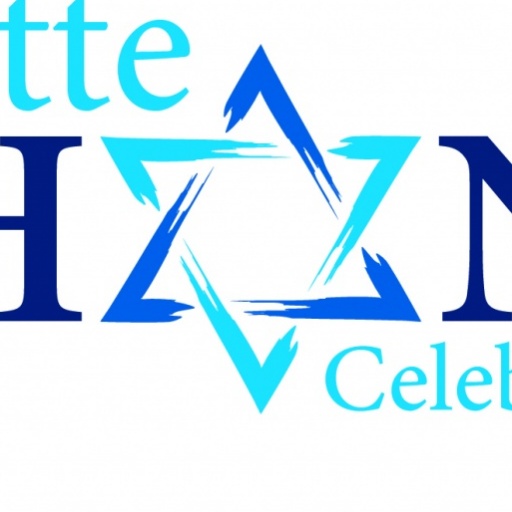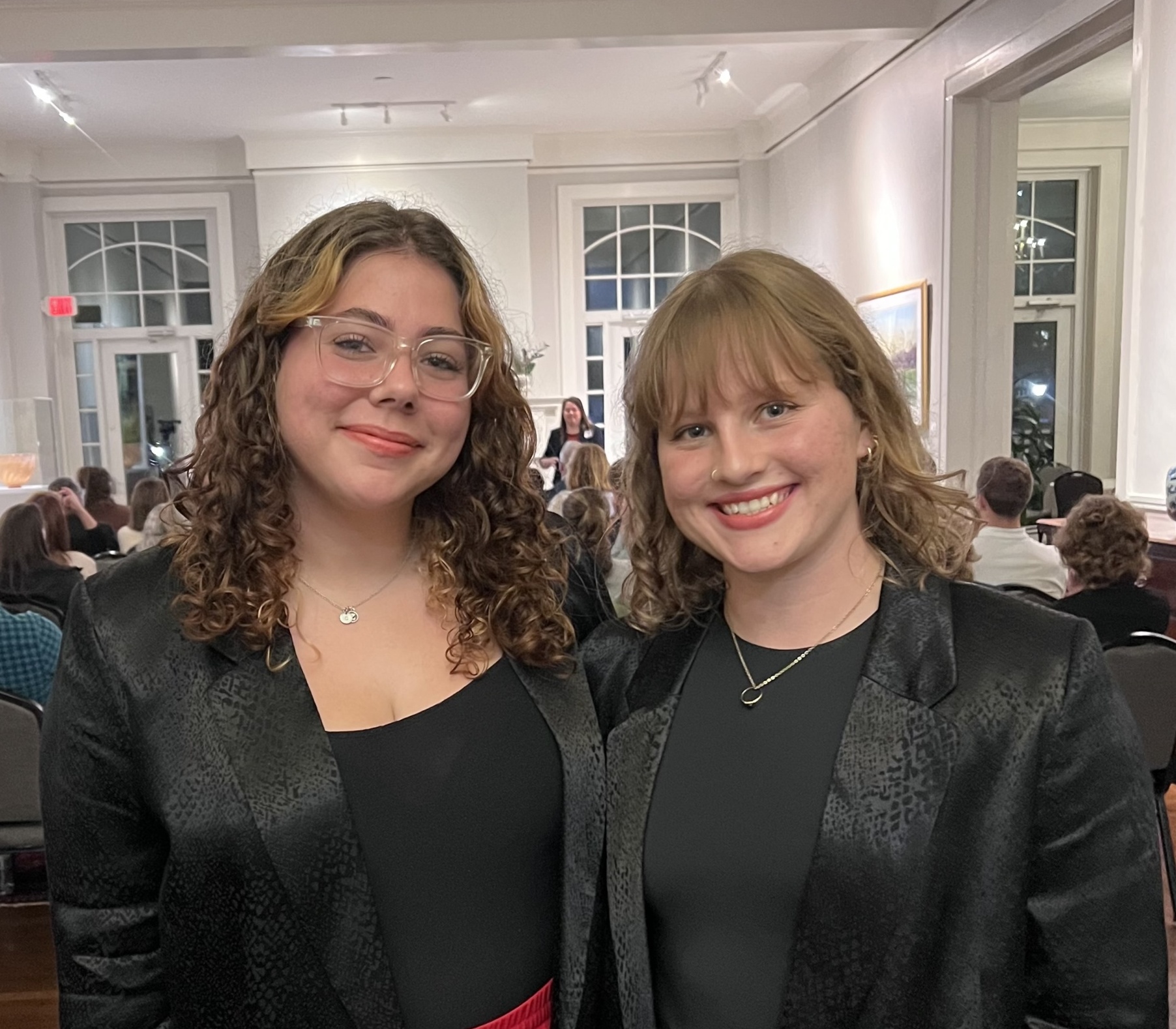By Mary Eshet
January CJN
When Sophie Lange and Chava Rosenberg began planning a conference to share their research on antisemitism on college campuses ten months ago, they could not have imagined the event would fall just a month after war broke out in Israel and during a time when antisemitism on college campuses was making national news daily. Sophie and Chava are Queens University students and the inaugural Greenspon Fellows, a program launched by the Stan Greenspon Holocaust and Social Justice Education Center in 2023. Through this leadership initiative, students are equipped with the knowledge and skills to combat antisemitism and other acts of hate. These students serve as campus leaders, engaging the Queens and broader community in education, action, advocacy, and bridge-building programs across lines of difference.
Sophie said a highlight of her experience as a Greenspon Fellow has been meeting many influential leaders while preparing for the conference. “We had the opportunity to talk with academic scholars, researchers, and rabbis with lived experiences of antisemitism and hate. This was something that I would never have had the chance to do if it weren’t for the Greenspon program,” she said.
Sophie and Chava invested 10 months in researching antisemitism on college campuses —its prevalence, the causes, and the best ways to mitigate it. On Nov. 10, they hosted about 50 students and faculty at Queens University and shared their findings.
Through the course of their presentation, Chava and Sophie defined antisemitism and explained antisemitic tropes. Their survey yielded responses from 45 students at 18 colleges in 13 states, and showed that 60% of the students had experienced or witnessed an antisemitic hate crime. In addition to the quantitative data, they collected about 30 qualitative responses. One respondent spoke of “some guys in a fraternity holding their arm up to resemble Hitler and laughing while I was right there.” Another told the story of being approached at a picnic “because of my Star of David necklace” and being told that “I am going to hell and that I’m a terrible person.” There were stories of swastikas drawn on dorm doors and yellow stars put on lockers.
The presentation included key ways to combat antisemitism: constructing shared identities, intergroup contact, and education. To illustrate shared identities, Sophie and Chava took the audience through an exercise in which they were asked to close their eyes and first imagine a Southerner, then a non-English speaker, then a Jewish person.
“You probably conjured separate images in your head, but what if we told you, it was all the same person?” they asked.
Intergroup contact can take the form of Diversity and Inclusion efforts on campuses. At Queens, the Diversity, Inclusion, and Community Engagement organization (DICE) is effective in connecting across different groups on campus.
Sophie and Chava also invited two F.B.I. agents to be part of the program to share information about hate crimes and the importance of reporting them. The agents emphasized the importance of getting away from one’s own echo chamber and being aware of others. They noted that loneliness is often a factor when people turn to hate, and urged the audience to check in with their friends, family, and acquaintances often.
Following the presentations, participants enjoyed a light dinner and conversation about how they can each be an important piece in the puzzle to eliminate antisemitism. The discussion encouraged participants to understand and recognize that every single one of us plays a role in combating hate of all kinds by being intentional, recognizing our shared identities, and stopping the spread of false rhetoric.
Sophie and Chava say the conference exceeded their expectations. “Our dream came alive that night in ways we couldn’t imagine,” said Sophie. “Almost every guest came up to us afterward to share how impressed and moved they were.”
The most resounding feedback was “Don’t stop here, keep researching, keep presenting, keep feeding this momentum.” Chava and Sophie plan to heed those words, and envision presenting their findings at an undergraduate political science conference and publishing their research in research journals.
Chava and Sophie emphasized that their research findings go beyond statistics and include the human element. “Our research is not just about numbers; it’s about humanity,” said Chava.
Attendees were offered stickers as mementos of the evening, each bearing empowering mantras such as ‘Collaborate to eliminate hate,’ ‘Anti Hate Club,’ and ‘Be an upstander, not a bystander.’ Sophie and Chava emphasize that combating hate demands collective action from everyone. They advocate that effective change doesn’t necessarily require extreme activism; rather, it involves a readiness to embrace diversity and engage with people different from you.
“We could not be prouder of Chava and Sophie,” said Judy La Pietra and Rabbi Judy Schindler, associate director and director of the Greenspon Center, respectively. “They have set the bar high for future Greenspon Fellows. The centerpiece of our organization is building capacity for combating hate. Chava and Sophie exceeded all of our expectations. We are excited for future Fellows to follow in their footsteps!”
Photo caption: Sophie Lange and Chava Rosenberg


